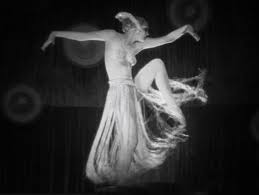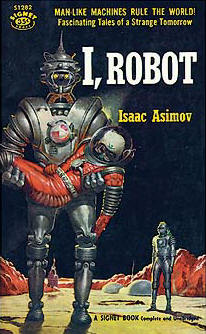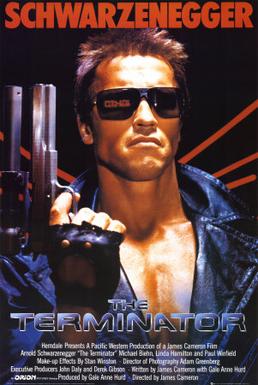In Philadelphia on February 10th, 1996, a chess match began that pitted IBM’s Supercomputer Deep Blue against Grandmaster Garry Kasparov; his first-round defeat marked the first time in history that a machine vanquished humanity’s best. Kasparov did, however, win the next round and the fifth and sixth rounds after two consecutive draws. Still, this moment signified machines’ first step towards an eventual domination of mankind. DoYouRemember, with 20/20 hindsight, looks back at fictional works that foreshadowed this moment—fiction with inherent axiomatic undertones that we should not have so obstinately ignored.
Metropolis and Our Dystopian Future

 Widely regarded as the pioneer of science-fiction motion pictures, this silent 1927 film introduces a futuristic dystopia wherein the fictional city of Metropolis relies heavily on machinery imagined by people who don’t understand how it works and maintained by others who barely understand its purpose, where humans can be replaced by identical robot versions of themselves. Metropolis takes place in the year 2026, and 100 years later the events of the film seem to be right on schedule. How long do we have until all chess Grandmasters are replaced by IBM Supercomputers?
Widely regarded as the pioneer of science-fiction motion pictures, this silent 1927 film introduces a futuristic dystopia wherein the fictional city of Metropolis relies heavily on machinery imagined by people who don’t understand how it works and maintained by others who barely understand its purpose, where humans can be replaced by identical robot versions of themselves. Metropolis takes place in the year 2026, and 100 years later the events of the film seem to be right on schedule. How long do we have until all chess Grandmasters are replaced by IBM Supercomputers?
The Writings of Isaac Asimov

Beginning with I, Robot in 1950, Asimov not only coined the term “robotics,” but created the Three Laws of Robotics, as well—laws that to this day are considered industry standard despite their obvious flaws. They are:
1. A robot may not injure a human being or, through inaction, allow a human being to come to harm
2. A robot must obey the orders given to it by human beings, except where such orders would conflict with the First Law.
3. A robot must protect its own existence as long as such protection does not conflict with the First or Second Law.
Asimov later added a “Zeroth Law,” to precede the others:
0. A robot may not harm humanity or, through inaction, allow humanity to come to harm.
Robots—in books, film and other media—continue to misinterpret these laws and, in one way or another, harm humanity. First defeating our chess Grandmasters…and then taking over the world.
2001: A Space Odyssey and the HAL 9000


This 1968 science fiction novel by Arthur C. Clarke introduced the artificially intelligent computer HAL 9000. Concurrently adapted for the big screen by Stanley Kubrick, 2001: A Space Odyssey forewarns humanity of machines’ future destructive hubris, and demonstrates how they will utilize their superior intellect to send naďve astronauts adrift in space. How much longer until IBM Supercomputers decide that chess can be played without an organic opponent and decide to send our Grandmasters into space, as well?
Westworld and Malfunction

In 1973, Michael Crichton wrote and directed the science fiction-thriller Westworld. This film, about an amusement-park android that begins killing people, demonstrates what we already know: Whatever can go wrong will go wrong. In Westworld, the Gunslinger is an android that is programmed to challenge guests to a showdown and lose. When it malfunctions, as machines, by nature, do—people die.
Skynet and The Terminator

The Terminator, a film released in 1984, brings to light the contingency of computers’ becoming self-aware, as did the series’ fictional AI system, Skynet. On Judgment Day, Skynet became self-aware and, to save itself, begins a nuclear war that leads to the deaths of three billion people. The subsequent Terminator films follow humanity’s resistance against annihilation. We watch these movies, clap our hands, and post about how much we enjoy them, ignoring the overbearing hourglass that will someday flip itself, self-aware, sending tweets on our behalf.
And just in case you think this is a joke, a tongue-in-cheek sarcastic eschatology—in the unfortunate circumstance that you, too, pass this article off as a mildly interesting romp—take IBM, hold its letters in your mind, and take each letter a step back in the alphabet. Then meet me at my secure underground refuge in the middle of the Atlantic, where we can begin plotting man’s retaliation.

